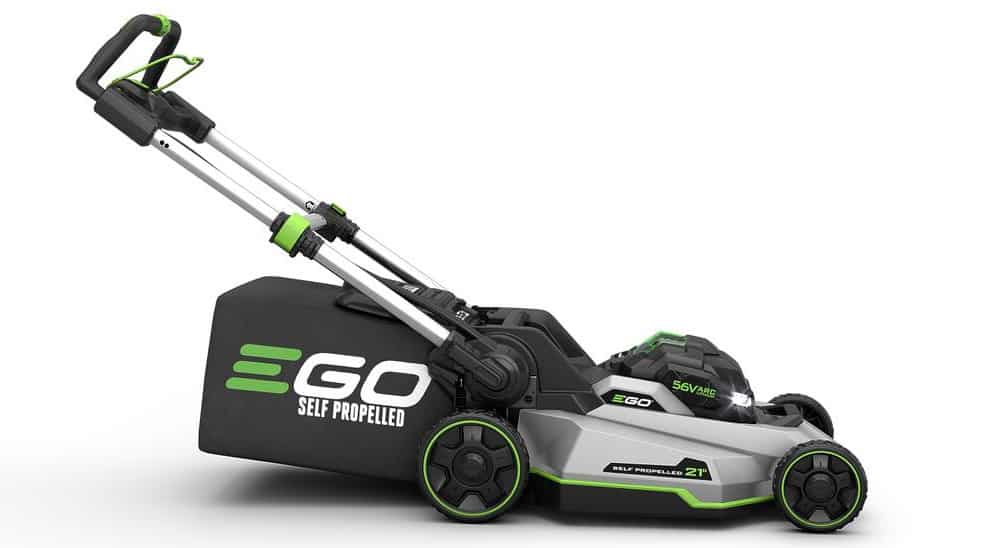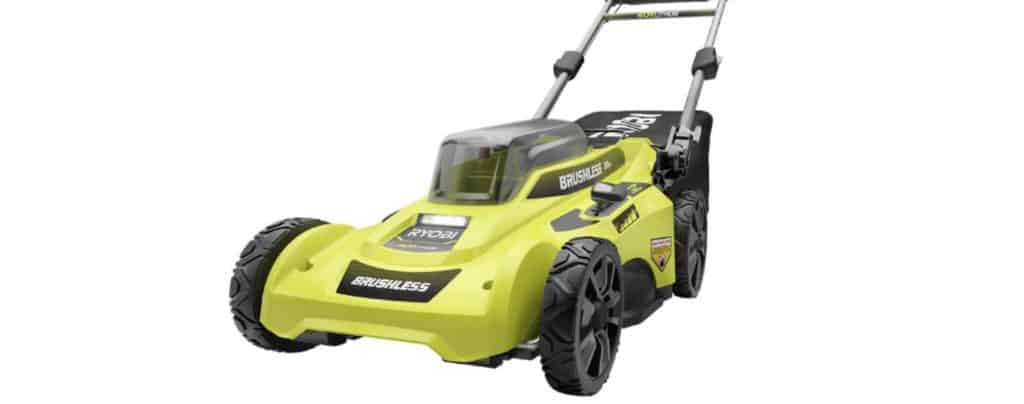Every spring I look at my gas lawn mower and wonder if it will last another year. I then wonder, if I was to replace it, would an electric mower the be right choice?
Having done the research, here are my thoughts on if you should buy a gas or electric lawn mower.
When I’m considering purchasing a new mower, I’m thinking through the price of course, but also its size (my garage space is at a premium), the pain of getting gas for my mower and small power tools (perhaps my least favorite chore), maintenance, reliability, safety, noise, and cutting power.
Personally, reliability is my number one factor because I’m not a fan of small engine repair and when I want to mow my lawn, I want to mow my lawn, not tune up an engine, clean a spark plug, or wonder if my gas fouled after a long winter.
Are Electric Lawn Mowers Any Good?
This is the first question that comes to most people’s mind when considering an electric mower. I’m sure many of us have had experience at some point with a corded electric mower which likely wasn’t pleasant. Just to be clear: that mower you used 15 years ago to mow Aunt Mildred’s 12′ x12′ backyard isn’t like the electric mowers of 2021.
While corded electric mowers still exist, largely for urban settings, electric mowers are sold today that have more than sufficient power and can tackle a quarter acre or half acre of lawn. Many of these are cordless and the use high-quality battery systems, like Ryobi’s 40V battery packs, to name one example.
Something like the Ryobi 20-inch walk-behind model is cordless has sufficient power, and will run for over 45 minutes on a charge. These models are self-propelled and are often sold with spare batteries so you can tackle a larger lawn with no problem.
Electric mowers use electricity instead of gas so it’s not like they are free to operate, but they don’t require you keeping combustable gas in your garage or shed and they don’t let out any nasty 2-stroke fumes in your yard, which is a nice perk for you and for environment.
Power and Electric Mowers
One of the best things about a gas mower is that they almost all have power to spare. This is especially handy if you are the type of homeowner who is going to mow a lawn that is covered in leaves or you want to mow the lawn while it’s still damp. The power will show through and you’ll be thankful for it.
So while some electric walk-behind mowers have “gas-like power” can they really rival the 4-6 horsepower (or so) of a typical self-propelled mower? A small gas mower might have about 8 ft-lb of torque.
Electric lawn mowers won’t list horsepower, but sadly they don’t usually list foot-pounds of torque either, so it’s a gamble to know how much power you are getting. Having done some back of the napkin math, I have estimated that most of the 40V lawn mowers sold today have the equivalent about a 2 to 2.5 horsepower motor and about 2.5 to 3 ft-lb of torque.
Searching around the web found other people’s conclusions are the same. Yes, there are some 80V electric mowers and there is that big Ryobi RY401150 which uses a pair of 40V 6A batteries for maximum power, but typically you are going to fall short on power if you go electric.
If you mow regularly and don’t do so under tough conditions, then no problem at all. But if you sometimes miss your mowing for a few days and then want to cut at your normal height when the grass is extra long or a bit damp, and you are going to have a long, tiresome, clumpy mowing job in your future.

There are some high-power electric mowers like the EGO Power+ 21″ Select Cut XP which tout 8.3 ft-lb of torque, a number that beats many gas mowers, but these aren’t the default and they aren’t cheap, often selling for over $500 and up to $800 if you are going with deluxe, maximum power models.
Keeping in mind the power numbers for this sort of mower are likely talking about peak or potential power, not what you’d use if you want to get any reasonable battery life out of the lawn mower. Most realistically these mowers will output power like a lower-end gas walk-behind mower, not something that is going to blow the doors off your Honda self-propelled.
Gas Mower Maintenance
So gas mowers win out for power, but let’s face it, a combust motor needs a fair bit of attention. Gas mowers need fuel, they need oil, and they need tune-ups. Electric mowers need none of these things and turn out to be practically maintenance free.
Electric mowers don’t have oil filters, air filters, carburetors, or spark plugs, so in order to keep it in good working order you’ll want to make sure it’s relatively clean, that all the parts (including the blade) are tight, and nothing is blocking the vents that lead to the motor on the outer housing.
It really couldn’t be simpler to maintain an electric lawn mower, which is perhaps the single biggest perk of owning one.
Noise Levels
You might have noticed that electric cars seem practically silent as they drive down the street. Electric mowers aren’t silent — you still have that big blade spinning around and chopping things — but they are considerably quieter than gas lawn mowers.
A gas mower is easily 2-3x louder than an electric model, with many gas models peaking at loud 85 decibels. This is a number that is approaching what can cause damage to your hearing after 2 hours, according to the CDC. Electric mowers don’t tend to go past 75 db which the CDC says might annoy you but won’t damage your ears (sounds about right!).
Gas Or Electric Lawn Mower?
Hopefully at this point you have some inkling which walk-behind mower type is best for you.
Do you need power and don’t mind the noise? Gas it is.
Do you want a quiet mower that is maintenance-free but perhaps rather expensive for what you are getting? Then an electric lawn mower is likely in your future.
Of course the same money is on a gas-powered Honda — I’ve had the same one for 20+ years now — but electric mowers are an increasingly compelling option that will lower your noise levels and cut down on fumes around your home.

